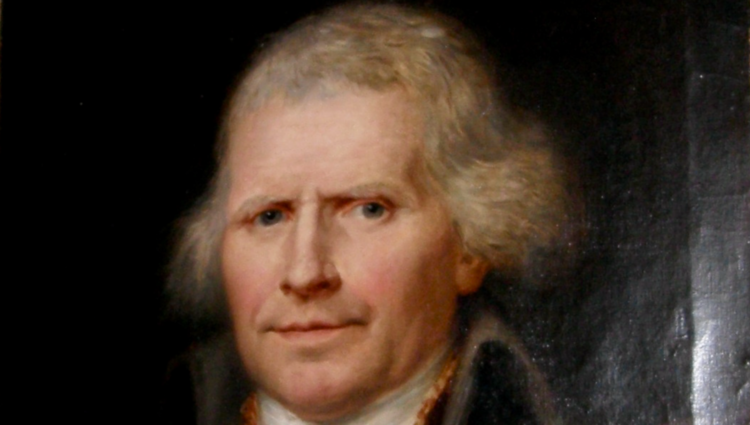The sanitizing of Thomas Jefferson has played a role in the crippling of public discourse. Nowadays, anyone who would discuss something so anodyne as political decentralization or states’ rights has to walk on eggshells, lest he find himself attacked and stigmatized by enforcers of political orthodoxy. We should question an American political establishment that obfuscates the inconvenient facets of Jefferson’s complex career.
 At times pundits—even conservatives—treat Thomas Jefferson as if his whole legacy were reducible to the phrase “all men are created equal.” And admittedly, Jefferson’s promotion of equality is an inescapable element of his life’s work. Yet even setting aside the question of whether all men really are equal, or what such a proposition has to do with conserving things, it is reasonable to wonder whether there might be another side to the Sage of Monticello, aside from the egalitarian one. After all, it is not the Declaration of Equality which we commemorate every Fourth of July.
At times pundits—even conservatives—treat Thomas Jefferson as if his whole legacy were reducible to the phrase “all men are created equal.” And admittedly, Jefferson’s promotion of equality is an inescapable element of his life’s work. Yet even setting aside the question of whether all men really are equal, or what such a proposition has to do with conserving things, it is reasonable to wonder whether there might be another side to the Sage of Monticello, aside from the egalitarian one. After all, it is not the Declaration of Equality which we commemorate every Fourth of July.
Those seeking a more well-rounded view of the man might consider Jefferson’s agrarian vision, which happens to be especially pertinent to the rural Red States of “flyover country.” Quite aside from his skepticism toward large banking interests, Jefferson explicitly described “those who labour in the earth” as “the chosen people of God,” even as he solemnly declared that “the mobs of great cities” do just what “sores do to the strength of the human body.” Where urban-based conservatives are often happy to join ranks with socialists in dismissing what Karl Marx called “the idiocy of rural life,” Jefferson saw the independent family farmer as the cornerstone of a true republic.
And if Jefferson’s agrarianism is difficult to reconcile with the 21st -century American political establishment, his role in the Virginia & Kentucky Resolutions of 1798 is downright incendiary. In his retort to the Alien and Sedition Acts passed by Congress during the Adams administration, Jefferson wrote that, with respect to the US Constitution, “each State acceded as a State, and is an integral part.” This means, continued Jefferson, that “the several States composing, the United States of America, are not united on the principle of unlimited submission to their general government.” The upshot? In Jeffersonian reckoning, state governments have the right to nullify federal actions whenever they judge the central government to have overstepped its authority.
As if to drive home the point, Jefferson related in a private letter to Gideon Granger his vehement opposition “to standing armies, paper systems, war, and all connection other than of commerce with any foreign nation,” even as he noted that such principles “the federalists have opposed uniformly,” as did “the whole body of New England.” Were the federalists and New England to triumph, Jefferson warned, the result would be “to sink the state governments, consolidate them into one, and to monarchize that.” Above all, Jefferson contended, Americans should resist the formation of “a single consolidated government.” In other words, they should resist precisely the kind of government we now have.
Yet as it happens, Jefferson’s frank rejection of the centralization now hardwired into American politics is not even his most controversial position. If anti-Jefferson leftists ignore both Jefferson’s clear regret over the institution’s introduction to the Americas, and his desire for emancipation, nervous mainstream conservatives are too quick to gloss over some of his other thoughts on the subject of slavery. For in his extensive reflections upon the matter in Notes On the State of Virginia, Jefferson concluded that “among the Romans, about the Augustan age especially, the condition of their slaves was much more deplorable than that of the blacks on the continent of America.” After all, he explains, in ancient Rome, “when a master was murdered, all his slaves, in the same house, or within hearing, were condemned to death. Here punishment falls on the guilty only, and as precise proof is required against him as against a freeman.”
Given how mild this claim objectively is – slaves were generally worse off in the Roman empire than they were in America – it is easy to overlook just how far it stands beyond the pale of political-correctness. Certainly in 2022 few conservatives would even attempt to contextualize Southern slavery, much less admit that antebellum Virginia was an improvement over other places and eras where slavery had been practiced. For anyone who did so would swiftly get “canceled” – not by the left, mind, but by mainstream conservative media itself.
And even more unacceptably for said establishment, Jefferson’s support for emancipation was balanced against his anxieties about the dangers uncontrolled emancipation posed to Virginia and the South. He was convinced that an emancipation recklessly conducted would be disastrous for all sides, would “divide us into parties, and produce convulsions, which will probably never end but in the extermination of the one or the other race.”
Just to be clear, what we make of Jefferson’s views about agrarianism, nullification, and other issues is beside the point. Certainly no Christian conservative can treat a self-identified Epicurean and Enlightenment skeptic as infallible, Founding Father or no. For that matter, like most men Jefferson was not always consistent even with respect to his own theories; it might be best to see him as a complex historical persona rather than as the mouthpiece of a systematic ideology, right-wing or left-wing.
No, the point is that we should question an American political establishment which puts Jefferson on a nationalist pedestal, especially since that same establishment obfuscates the inconvenient facets of Jefferson’s complex career. Why should we cherry-pick one single phrase of Jefferson’s to treat as if it were Holy Writ – all men are created equal – yet ignore his inclination to equate homosexuality with rape? If an authority is taken seriously only when he buttresses conventional wisdom, how is he an authority at all?
In any event, the sanitizing of Jefferson has played a role in the crippling of public discourse. Nowadays anyone who would discuss something so anodyne as political decentralization or states’ rights has to walk on eggshells, lest he find himself attacked and stigmatized by enforcers of political orthodoxy. Indeed, things have so decayed that we cannot openly question the implementation of federally-driven affirmative action programs—or even utter so innocuous a phrase as “all lives matter”—without running the risk of being labeled white supremacists. We can only wonder what might have been, had the establishmentarians shown more courage, if a little more time been spent discussing Jefferson’s politically-incorrect views instead of carefully filtering them so as to make the public forum a left-friendly “safe space.” Perhaps we all would today be living in a more reflective, less touchy environment, one where it would be less easy for self-appointed thought-police to swoop down and ruin lives.
This essay was first published here in October 2022.
The Imaginative Conservative applies the principle of appreciation to the discussion of culture and politics—we approach dialogue with magnanimity rather than with mere civility. Will you help us remain a refreshing oasis in the increasingly contentious arena of modern discourse? Please consider donating now.
The featured image, uploaded by Michael Andrew Wilson, is a photograph of a 19th-century portrait of Thomas Jefferson by Jean-Baptiste François Desoria. This file is licensed under the Creative Commons Attribution-Share Alike 4.0 International license, courtesy of Wikimedia Commons.












